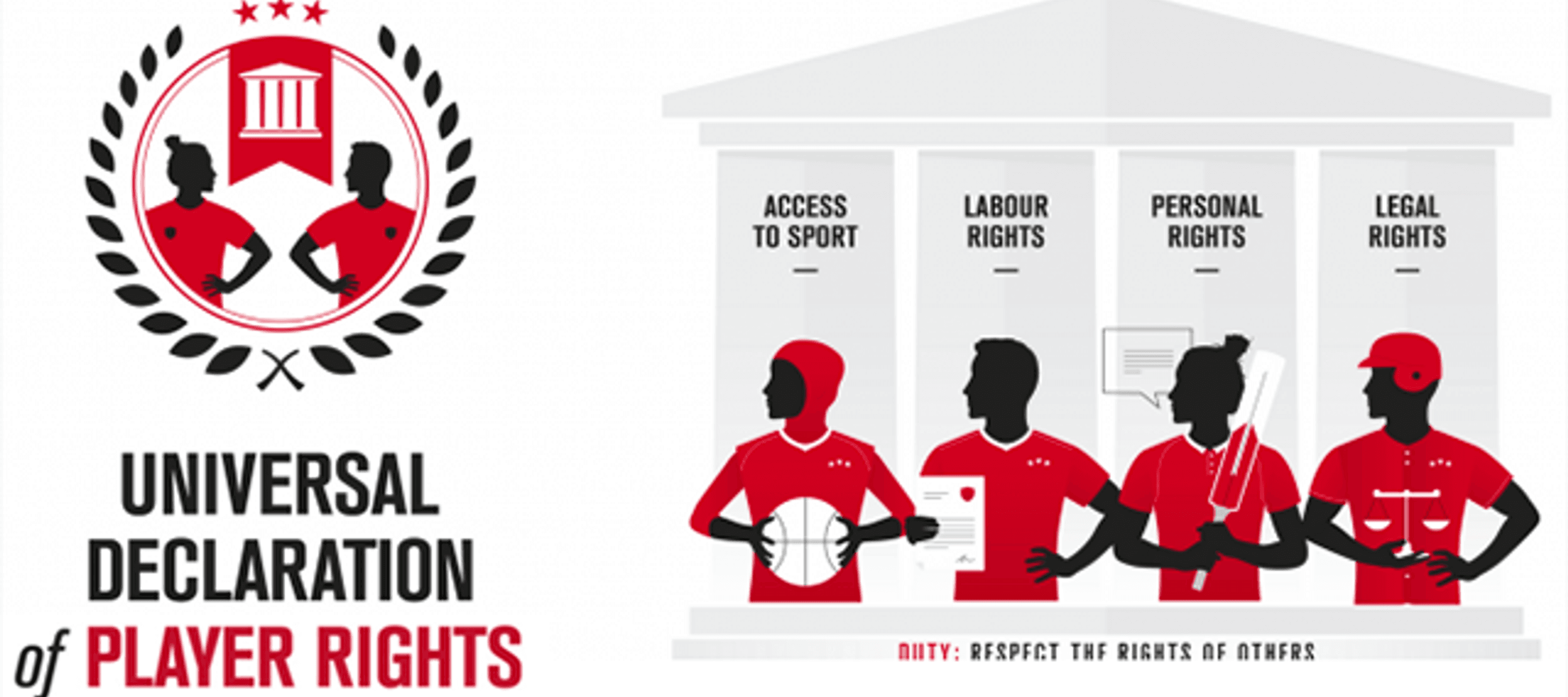World Players Association launches Universal Declaration of Player Rights
14 December 2017

Today, the world’s leading player associations unveiled the Universal Declaration of Player Rights (the Declaration) to protect players from ongoing and systemic human rights violations in global sport. The Declaration, the first comprehensive articulation of athletes’ rights, sets a benchmark for international sporting organisations to meet their obligations to protect, respect and guarantee the fundamental rights of players.
“The rule books of world sport impose thousands of pages of onerous obligations, but none clearly spell out the internationally recognised human rights of athletes,” said Brendan Schwab, Executive Director of the World Players Association. “The result is an unjust system of sports law that lacks legitimacy and fails to protect the very people who sit at the heart of sport. We are making it clear that athlete rights can no longer be ignored. They must be able to quickly access justice.”
The implementation of the principles set out in the Declaration will introduce long overdue reforms to the governance of sport. Some examples include:
- Every player is entitled to equality of opportunity in the pursuit of sport without distinction of any kind and free of discrimination, harassment and violence.
- Every player has the right to freedom of opinion and expression.
- The rights of every child athlete must be protected.
- Every player has the right to share fairly in the economic activity and wealth of his or her sport which players have helped generate, underpinned by fair and just pay and working conditions.
- Every player has the right to organise and collectively bargain.
- Every player is entitled to have his or her name, image and performance protected. A player’s name, image and performance may only be commercially utilised with his or her consent, voluntarily given.
- Every player has the right to a private life, privacy and protection in relation to the collection, storage and transfer of personal data.
- Every player must be able to access an effective remedy when his or her human rights are not respected and upheld. This is particularly crucial given the highly skilled yet short term and precarious nature of the athletic career.



